Staying Nimble and Adaptable to Change
Staying Nimble and Adaptable to Change
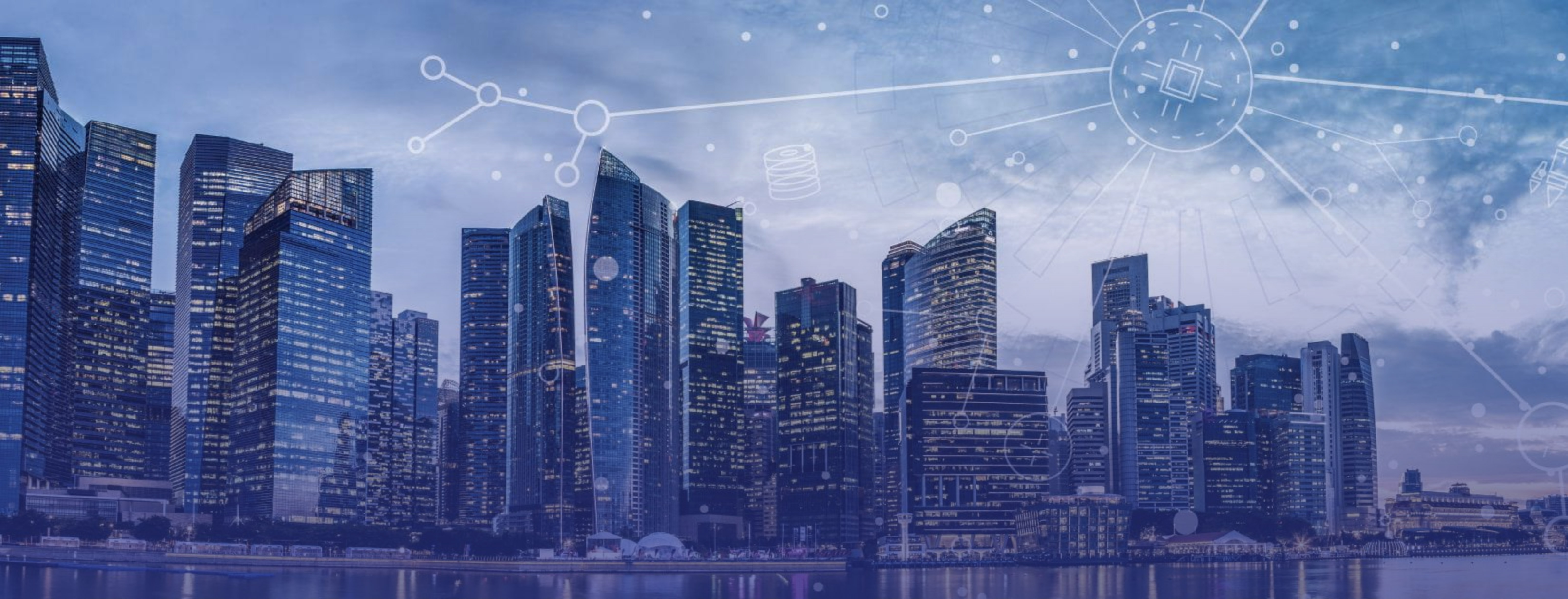 (Image: Ministry of Trade and Industry Singapore)
(Image: Ministry of Trade and Industry Singapore)
The government has played a central role in building and growing the economy.
In its 2017 report, the Committee on the Future Economy stressed that it cannot tell the future, but it knows what Singapore will need to succeed:
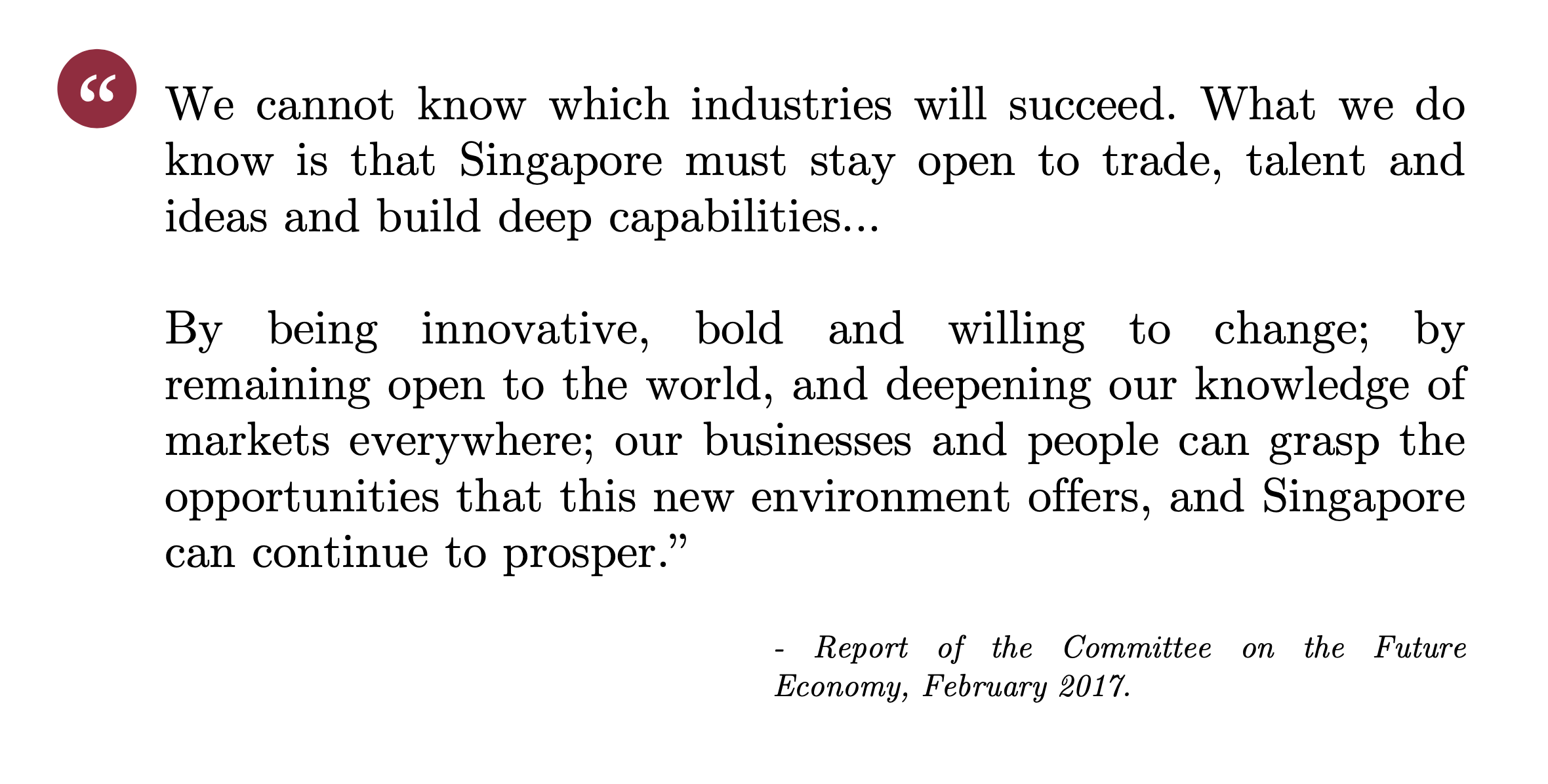
This approach is making a difference.
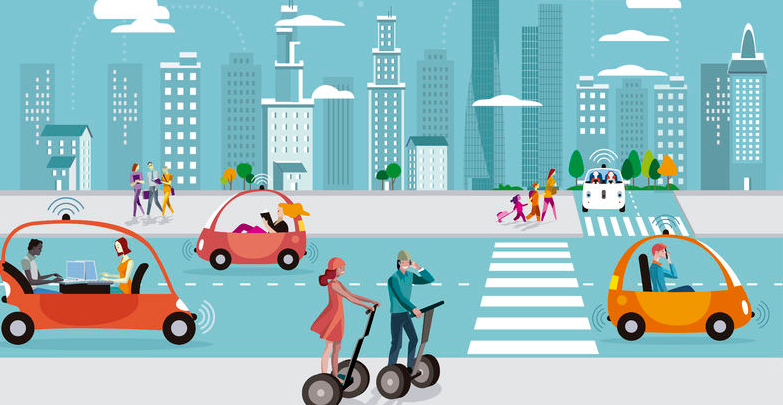 (Image: GovTech Singapore)
(Image: GovTech Singapore)
For instance, the government has been testing autonomous vehicles in parts of Singapore, with the aim of rolling them out for public use.
Additionally, we have introduced new practices in agri-technology, such as tower farming and the use of AI-controlled environmental lighting, which have helped push new frontiers in the sector.

Transforming our Industries
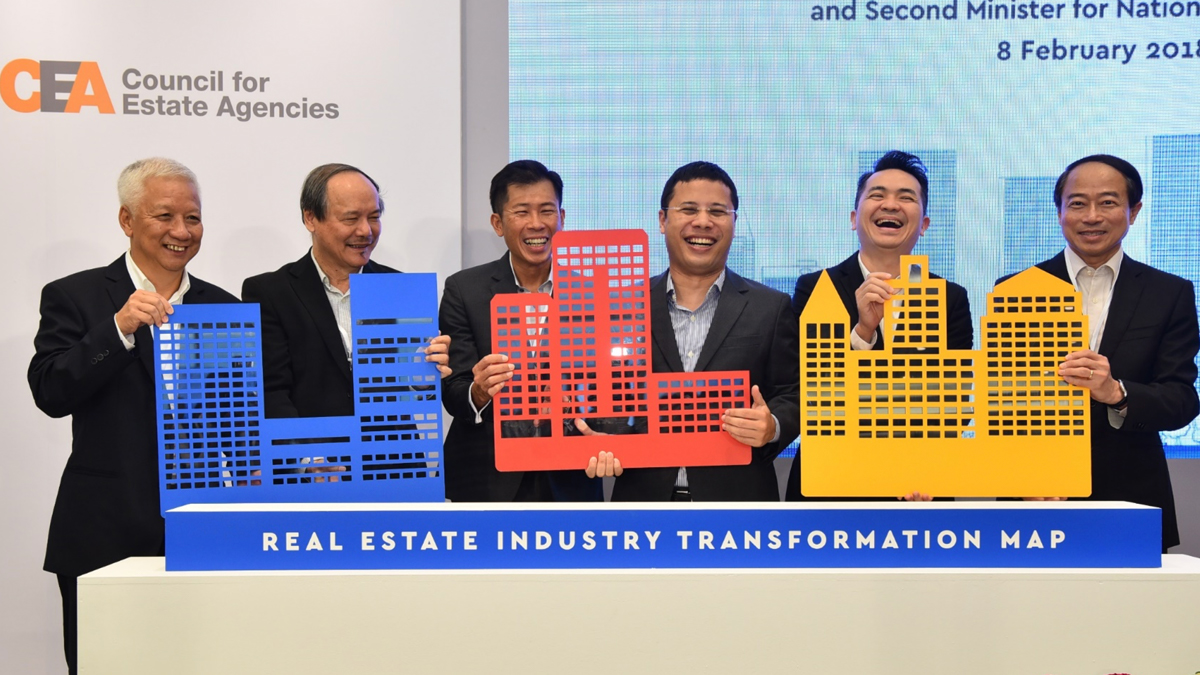 (Image: Launch of the Real Estate Industry Transformation Map; JTC Corporation via Council for Estate Agencies)
(Image: Launch of the Real Estate Industry Transformation Map; JTC Corporation via Council for Estate Agencies)
Today, the global economy is marked by accelerating pace of change, with shorter business cycles and rapid digital disruption. It’s thus important that we, a small and open economy, continuously reinvent itself to keep up with change.
Companies in Singapore face both opportunities and challenges in the new digital economy. E-commerce, for instance, opens up new markets while slashing costs for both big and small companies.
To help companies transform, Singapore has rolled out Industry Transformation Maps (ITM) for 23 sectors, and which covering 80% of the economy.
ITMs aim to transform companies at a sectoral level. These maps take into account each industry’s specific needs, targeting companies which need help transforming its practices.
For instance, manufacturing companies can seek grants from the government to acquire robots or hasten automation. These efforts lower the cost barriers for firms to adopt technological solutions to boost productivity and scale practices.
Business associations are partnering the government and the unions to carry out the work the ITMs rolled out so far.
The New Normal
In the recent years, international economic conditions have changed.
The COVID-19 pandemic triggered unprecedented challenges worldwide, and governments and observers around the world believe its economic impact will be lasting. There will be structural shifts – in global trade, investments, right down to jobs – that will transform how industries and markets run in a post-COVID world. As Prime Minister Lee Hsien Loong put it in his May Day 2020 message:
“Some industries will be disrupted permanently. Companies will have to change their business models to survive. Some jobs will simply disappear. Workers in these industries will have to re-skill themselves, to take up jobs in new sectors.”
“But there will also be new opportunities, and new jobs created too. For instance, during the circuit breaker, people have adjusted. We have learnt to telecommute and work with others virtually. Students are getting used to online learning. And more people are buying things online and making e-payments.”
As we adapt and get more accustomed to working and learning from remotely, for instance, the way companies and employees operate in the future can change. The same goes with how we now consult a doctor through telemedicine, or use delivery services, which is increasingly becoming an integral part of life.
But it is not just the COVID-19 pandemic, or even the war in Ukraine. As PM Lee also said at the National Day Rally 2022:
“The recent decades were an exceptional period. China’s economy was growing exponentially, and exporting more and more goods at highly competitive prices all over the world…This era is now over.
“Some countries have raised tariffs against each other, particularly between the US and China. Countries are also relooking at their supply chains to prioritise resilience and self-sufficiency.”
For Singapore to stay relevant and exceptional, it is important that we become more productive and competitive – to press on with economic upgrading and restructuring; redouble transformation efforts; and have workers upgrade their skills at every opportunity.
Conclusion
In the 2011 book Hard Truths, former Prime Minister Lee Kuan Yew was asked what it will take for Singapore to survive, given the rising challenges that Singapore face.
His advice was simple, clear and straightforward:

Indeed, the story of Singapore’s journey from third world to first is one marked by sacrifice, determination and willpower. It is a story about how a people built something from nothing, how a nation’s fate that was determined by guts and gumption, and how the will of a people determined to survive managed to succeed against the odds.
It is with the knowledge of this past that we can be confident of the future. The world will continue to evolve, and change will continue to accelerate. For this, we must prepare for a world that is vastly different from what it is today.
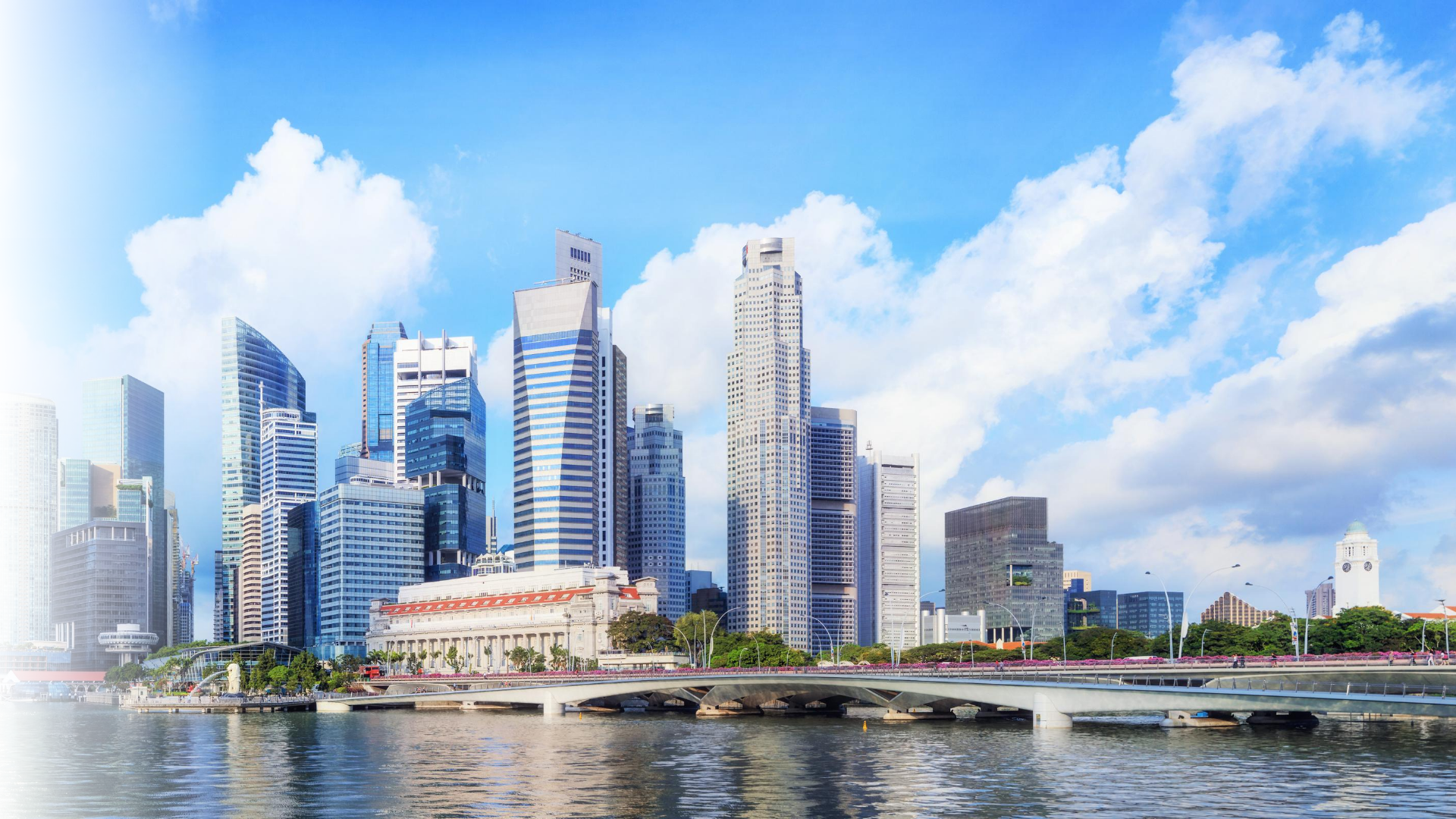 (Image: Gov.sg)
(Image: Gov.sg)

